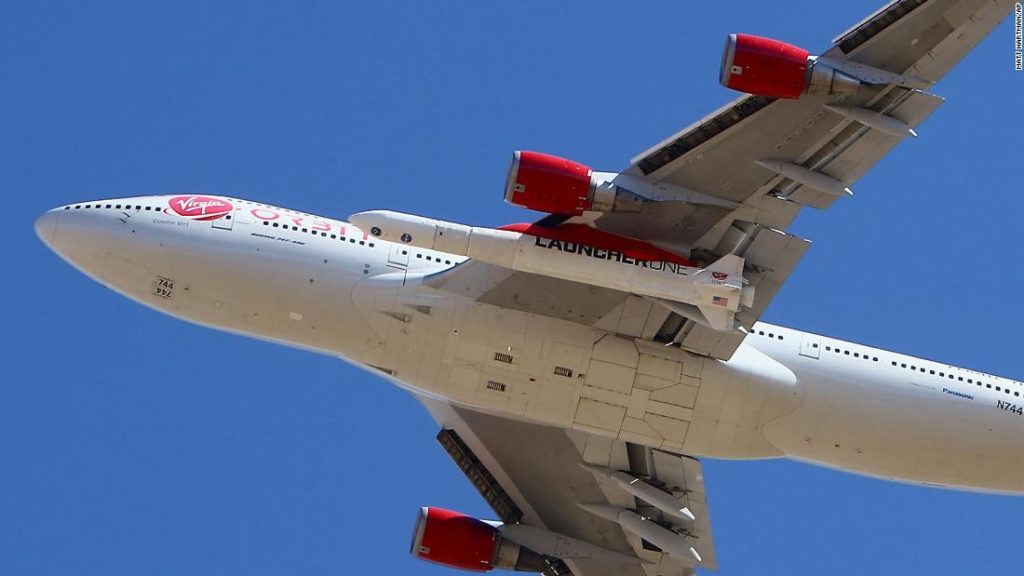Virgin Orbit’s 747, nicknamed Cosmic Girl, took off from California around 10:30 am PT with the rocket, called LauncherOne, nestled beneath the plane’s left wing. The aircraft flew out over the Pacific Ocean before the rocket was released, freeing LauncherOne and allowing it to power up its rocket motor and propel itself to more than 17,000 miles per hour, fast enough to begin orbiting the Earth.
The rocket flew a group of tiny satellites on behalf of NASA’s Educational Launch of Nanosatellites, or ELaNa, program, which allows high school and college students to design and assemble small satellites that NASA then pays to launch into space. The nine small satellites that Virgin Orbit flew on Sunday included temperature-monitoring satellite from the University of Colorado at Boulder, a satellite that will study how tiny particles collide in space from the University of Central Florida, and an experimental radiation-detection satellite from the University of Louisiana at Lafayette.
About four hours after takeoff on Saturday, Virgin Orbit confirmed in a tweet that all the satellites were “successfully deployed into our target orbit.”
The successful mission makes Virgin Orbit only the third so-called “New Space” company — startups hoping to overhaul the traditional industry with innovative technologies — to reach orbit, after SpaceX and Rocket Lab. The success also paves the way for Virgin Orbit to begin launching satellites for a host of customers that it already has lined up, including NASA, the military and private-sector companies that use satellites for commercial purposes.
“Launching from the Earth to space is mind-bogglingly difficult,” the company said after the 2020 launch attempt.
“We’re grateful and fortunate that most of our teammates have since cleared their preventative quarantines, allowing us to proceed with pre-launch operations,” the company said on December 31, “albeit with even more extreme measures in place to protect the health and safety of our team.”
Virgin Orbit, like other space technology companies in the United States, is permitted to continue operations throughout the pandemic because the government deemed the space sector part of the country’s “critical infrastructure” in March. As one industry group argued, the sector’s commercial activity is also intertwined with crucial US national security projects and NASA programs.
You may also like
-
UK coronavirus variant has been reported in 86 countries, WHO says
-
NASA technology can help save whale sharks says Australian marine biologist and ECOCEAN founder, Brad Norman
-
California Twentynine Palms: Explosives are missing from the nation’s largest Marine Corps base and an investigation is underway
-
Trump unhappy with his impeachment attorney’s performance, sources say
-
Lunar New Year 2021: Ushering in the Year of the Ox

